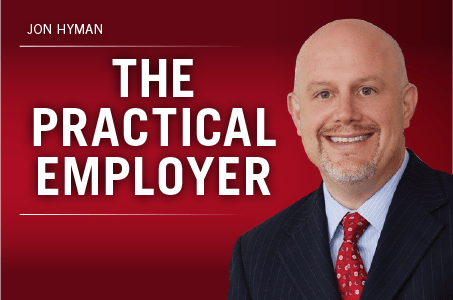An employee claims her supervisor advised her not to apply for an open position because “she is a single mother with kids and if [she] had to take time off work, it would jam [us] up for getting someone to cover the scheduling.”
The employee sues for gender discrimination. She wins in a landslide, right?
Edwards’ statements, if true, merely reflect his concern for the efficiency with which the company operated. Although the statements may have been insensitive to Weber’s relative position as a single mother, they do not, without some inferential leap or presumed ill intention, provide direct evidence of discrimination. This is especially so where, as here, Weber was offered the actual opportunity to apply for the position or, at the least, conduct further inquiry into the application process. We therefore hold the trial court did not err in concluding appellant failed to produce direct evidence of discriminatory intent.
I believe that Weber is an anomaly. To that end, take a look at this passage from the dissenting opinion, which is right on the money:
In this writer’s humble opinion, I disagree. I believe Edwards’ statements to Weber that he did not want her to apply for the service scheduler position because she is a single mother, if true, constitutes direct evidence of unlawful sexual stereotyping.


I hope she appeals. This is total discrimination in my opinion.
I hope she appeals. This is total discrimination in my opinion.
This situation probably would rise to the level of “discrimination” in another court, such as here in California. But, as a woman, I am wondering if the same outrage would be manifested if the comment would have been made to a single dad with three kids who would also be leaving his boss in the lurch if he had to call in absent for some reason. Everyone assumes that the supervisor would NEVER have said it to a man, “I don’t think you should apply for this position because you’re a single father,” but how do we know that’s true? The issue was not the woman’s gender. It was the fact that she has the sole responsiblity for the health and well-being of three young children, and there would likely be times when she couldn’t come to work because she had to care for her kids. Maybe she had access to great childcare options, which would make it a moot point. And we can argue whether it was fair for her to end up as a single parent with all that on her shoulders. But it’s a logical train of thought to wonder if an employee in that situation would be able to consistently perform their work. It would be true for a man or a woman. We like to jump to women’s defense and claim discrimination when they are faced with this kind of decision, but in reality, all the supervisor said was that her situation might cause him some headaches that he preferred not to have. He was a jerk, certainly, if he expressed it that way, but as an employer it’s a problem he does have to face. Employees’ private situations can have an effect on the operation of a business. We have gone very far down the road of claiming “discrimination” every time we have to deal with realities in our lives that mean we may not be eligible to receive what we want. Seeing ourselves as “victims” instead of trying to find creative ways to maximize our abilities and opportunities seems to weaken women, instead of empowering them. We keep lowering the bar for what it means to be “discriminated against.”
This situation probably would rise to the level of “discrimination” in another court, such as here in California. But, as a woman, I am wondering if the same outrage would be manifested if the comment would have been made to a single dad with three kids who would also be leaving his boss in the lurch if he had to call in absent for some reason. Everyone assumes that the supervisor would NEVER have said it to a man, “I don’t think you should apply for this position because you’re a single father,” but how do we know that’s true? The issue was not the woman’s gender. It was the fact that she has the sole responsiblity for the health and well-being of three young children, and there would likely be times when she couldn’t come to work because she had to care for her kids. Maybe she had access to great childcare options, which would make it a moot point. And we can argue whether it was fair for her to end up as a single parent with all that on her shoulders. But it’s a logical train of thought to wonder if an employee in that situation would be able to consistently perform their work. It would be true for a man or a woman. We like to jump to women’s defense and claim discrimination when they are faced with this kind of decision, but in reality, all the supervisor said was that her situation might cause him some headaches that he preferred not to have. He was a jerk, certainly, if he expressed it that way, but as an employer it’s a problem he does have to face. Employees’ private situations can have an effect on the operation of a business. We have gone very far down the road of claiming “discrimination” every time we have to deal with realities in our lives that mean we may not be eligible to receive what we want. Seeing ourselves as “victims” instead of trying to find creative ways to maximize our abilities and opportunities seems to weaken women, instead of empowering them. We keep lowering the bar for what it means to be “discriminated against.”